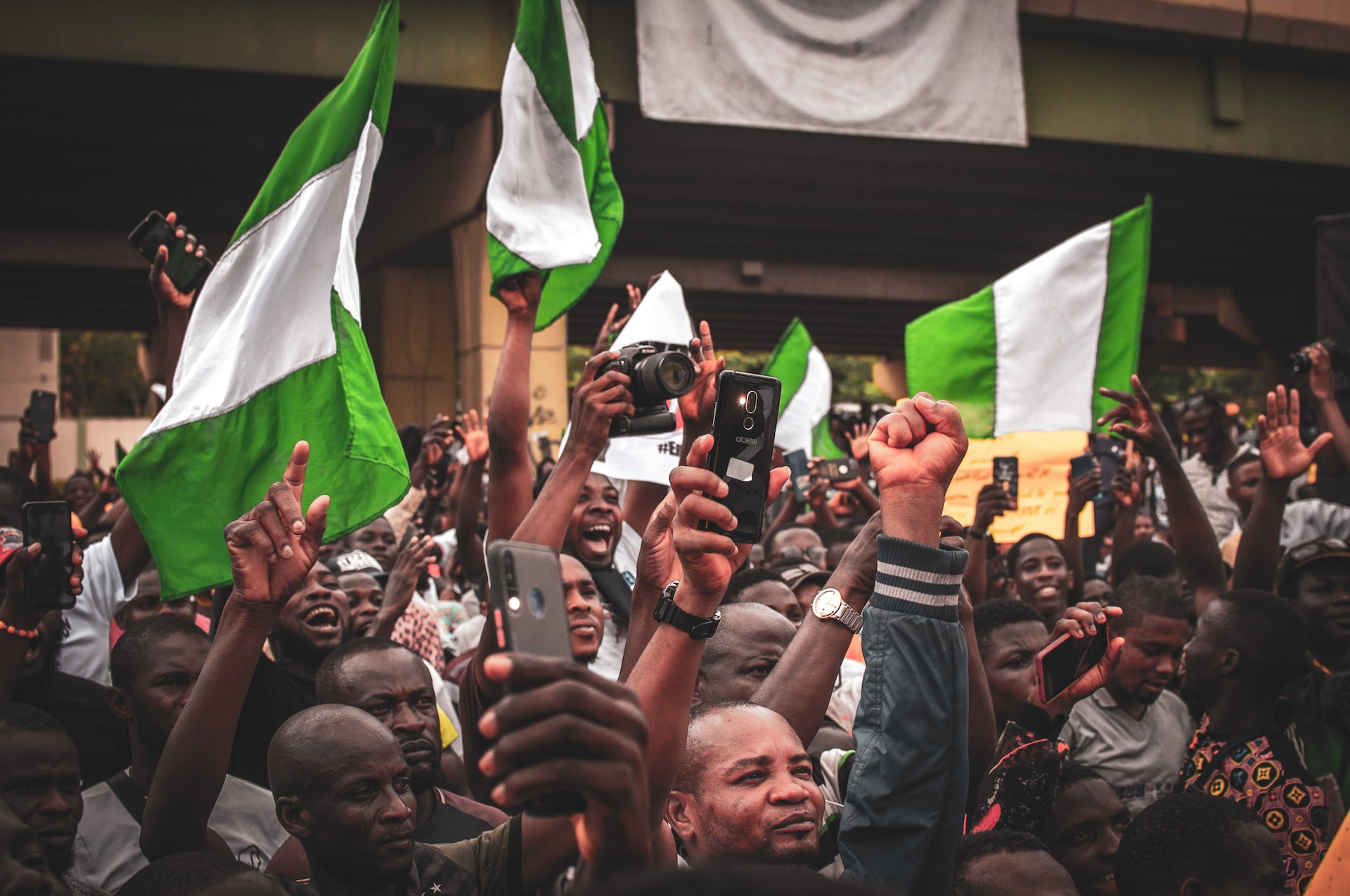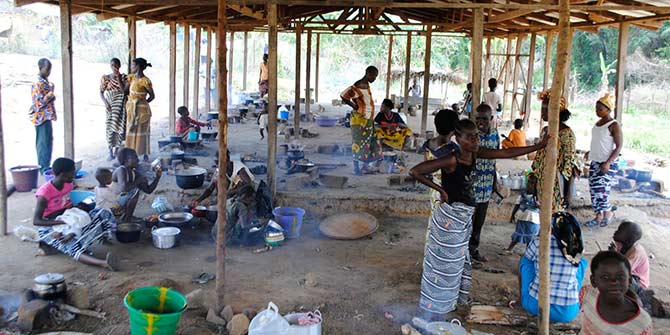Nkwachukwu Orji argues that Nigeria’s 2015 general elections are set to leave a lasting legacy on party politics in the country. This post is part of our African Elections series.
Political scientists see party contestation as a crucial element of true democracy. At the core of democratic elections is the expectation that the opposition can be the next government. Until the 2015 elections, such an expectation was not realistic in Nigeria. However, the emergence of the All Progressives Congress (APC) in February 2013 from a merger of four major opposition parties has transformed the country’s democratic context. The emergence of APC has helped break the electoral dominance of the Peoples’ Democratic Party (PDP), which has controlled the federal government since 1999.

The contestation between the main political parties in the 2015 elections is not yet focused on well-defined issues. At present, the range of issues before the voters is not necessarily mutually exclusive. This has made a rational choice by the voters extremely difficult. On one level, the contestation is between the parties – PDP as the ruling party and APC as a challenger to the incumbent. The bone of contention is the parties’ capacity to run an effective and accountable government.
On a second level, the contestation is between sets of politicians or elites, and here questions about their ethnicity, region, religion, credibility, leadership capacity, age, academic qualification, health record and general potential to effectively govern are set before the voter.
A third level of contestation is between policy proposals. The Nigerian elections are not yet primarily characterised by voters’ rational choice between policy proposals. They are therefore not yet issue-driven in the strict sense of the term. Rather, the electoral contest is characterised more by a convergence of policy directions. In the 2015 elections, the contest has been framed in terms of a choice between continuity and change – the specific contents of proposals for continuity or change are not yet defined.
The APC has used its message of change to effectively challenge the PDP’s nearly two-decade-long hegemony of Nigerian politics. Hinged on the failure of the PDP government to lead Nigeria out of its governance and security predicaments, the APC’s message of change appears to be reverberating in the society, especially among the youth and the middle and lower classes. The APC has successfully posed corruption as the fundamental challenge to the PDP’s moral fibre and the capacity of its government to produce results. Based on this standpoint, the party has staged sustained attacks on the PDP’s credibility as a party and the effectiveness of its government.
Although there is a basis for real engagement between APC and PDP, the ideological dimensions of the contest are essentially blurred. Many Nigerians struggle to find any real political difference between the major political parties. However, a dividing line between the parties rests on the notion of the wheel turning and providing a new group of politicians’ access to state power and the benefits that accrue from the control of state power. The main political division can therefore be seen from the point of view of the power shift.
The issue of this power shift was at the root of the mass defection of several senior northern politicians from PDP to APC. President Goodluck Jonathan’s decision to seek election in 2011, and again in 2015, broke the bargain within the PDP to rotate the presidency between the North and South. This led to the withdrawal of many prominent northern politicians from the party and triggered more demands for a power shift to the North.
On the other hand, the lack of willingness by PDP leadership to follow democratic procedures in running the party and in the selection of the party’s leadership and election candidates has created deep resentment among those that lost out. This has provided additional basis for mass defection of PDP members to APC, especially after the party’s congresses and convention.
The APC party has positioned itself to reap from PDP’s troubles – by receiving aggrieved PDP members and providing some of them with opportunities to actualise their aspirations as well as by presenting a popular northern politician and former military head of state, General Muhammadu Buhari, as its presidential candidate. In this way, APC accommodated PDP ranks not just from Northern Nigeria but from all over the country.
What results ideologically from APC’s quest to achieve a power shift is an opposition that in some respects leans towards the centre-left of PDP. The party has positioned itself as a mass party ready to ensure that the government is more accountable and that it is in touch with popular needs such as education, employment and security. The party’s presidential candidate, Muhammadu Buhari, is portrayed as a symbol of integrity and effective leadership – rare attributes in contemporary Nigerian politics.
APC’s positioning in the 2015 campaign is anchored on its countering of PDP, especially the government’s performance, thereby building an identity that harnesses the disaffection against PDP and its government. The APC’s attempts to mobilise the grassroots response to PDP’s governance failures have focused essentially on the social media. In its Twitter handle, the party describes itself as “a conglomerate of all progressive forces in Nigeria coming together to save Nigeria from the brink of collapse”. Although APC is clearly affected by its complicity of having many of its leaders in power along with the “accused”, the party has succeeded in advocating for the virtues of what amounts to political “new page-ism”.
The result that APC achieves in the 2015 general elections will greatly impact the future of opposition politics in Nigeria, and indeed, the country’s democratic development. APC’s success will demonstrate the value of national coalition of opposition leaders. What has distinguished APC from other opposition parties in Nigeria’s history is that the party is the first to form a multi-ethnic coalition.
The Nigerian political elite have always been divided ideologically between those that favour “regional security” via regional parties and those that promote national integration through multi-ethnic coalitions. It appears the emergence of APC has consolidated the latter – there are doubts that the former will ever find footing in Nigeria again. Opposition leaders in Nigeria appear to have realised the futility of attempting to secure political power at the national level through sectional appeals. This change of strategy is critical in opening up political space at the national level.
Finally, the emergence of APC has grounded the opposition domain in Nigeria – a positive for democracy. The opposition has been elevated from a fleeting phenomenon to a potentially more enduring element of Nigerian politics. PDP’s contest with the APC in 2015 is nothing like its engagement with any other opposition party in the past. For the first time in the post-1999 period an opposition party is determined to carve deeply into PDP’s support base and challenge the party’s national hegemony.
APC has infused a high degree of uncertainty about the electoral outcome in Nigeria’s political process. With the party’s sizeable share of offices at state and national levels, there is little doubt that Nigeria’s dominant party system has collapsed and that a vibrant two party system is emerging. Indeed, the 2015 general elections are poised to transform party politics in Nigeria in a very significant way.
Nkwachukwu Orji is a Research Fellow at the Institute for Development Studies at the University of Nigeria and currently an Alexander von Humboldt Fellow at the Institute of African Affairs at the German Institute of Global and Area Studies.
The views expressed in this post are those of the author and in no way reflect those of the Africa at LSE blog or the London School of Economics and Political Science.






1 Comments